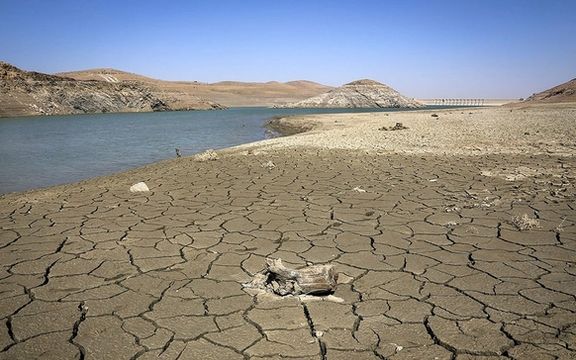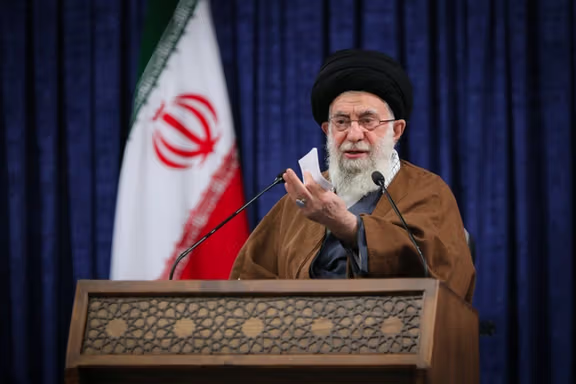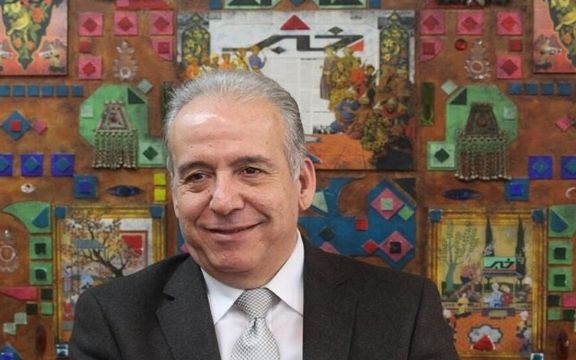Japanese Refiner Prepares To Resume Iranian Oil Imports

Japanese oil and energy corporation ENEOS has announced its readiness to resume Iranian oil imports within two to three months of any revival of the 2015 Iran nuclear deal.

Japanese oil and energy corporation ENEOS has announced its readiness to resume Iranian oil imports within two to three months of any revival of the 2015 Iran nuclear deal.
Tsutomu Sugimori, chairman of Japan’s largest refiner, said Thursday that ENEOS would not be able to resume Iranian imports immediately as it needed to set up insurance and arrange shipping. He called a two to three-month period a “possibility.”
Japan suspended Iran oil imports in 2019, as the expiry of a limited United States sanctions waiver raised the threat of US punitive action against Japan for buying Iranian oil. Sugimori Thursday reflected his company’s interest in Iranian oil, which is suitable for refining and likely to be competitive as global prices rise.
"Once reaching agreement, [Iranian oil] will be a choice for our crude oil procurements, and that's when we start our consideration,” he said. "Without the lifting [of the US threat to penalise the company], there will be no deal [to resume imports] because the current sanctions are weighed heavily…”
Sugimori suggested that the easing of US ‘maximum pressure sanctions’ would bring an extra 2 million barrels of oil a day onto the world market.
Also in preparation for the possible easing of US sanctions, Iran and South Korea, another major Iranian oil customer before 2018-19, opened detailed talks on freeing Tehran's money frozen by Korean banks fearful of punitive US measures.

Tehran is set for severe drinking water supply shortages in the coming summer due to low precipitation and evaporation from dams.
Mohsen Mousavi Khansari, board member of NGO aimed at raising awareness of Iran’s water and soil issues, made the projection in an interview with Tasnim news agency Wednesday.
Khansari said that the five dams around Tehran, the main sources of drinking water for the metropolitan region, currently have 300 million cubic meters (m3) of water, which is not enough to avert a water shortage in the summer.
Latyan and Lar dams, which supply water to the eastern parts of Tehran province, have a total 20 million m3 of water that will run out in coming days, he said. Water in Amirkabir Dam, in the west of Tehran, is down two thirds from a year ago to 30 million m3, “which is deeply worrying,” Khansari told Tasnim.
“If we add Mamlu and Taleqan Dams to the other dams, there will be a total of 300 million cubic meters of water, and if we consider the rate of evaporation and decrease in precipitation, we will definitely have many problems in the summer to supply drinking water to Tehran,” Khansari concluded.

Iran has ranked 170 among 177 countries in economic freedom in the latest annual report by the American think thank the Heritage Foundation.
With an overall score of 42 out of 100, Iran ranked the lowest among 14 Middle Eastern countries included in the survey of the economic freedom report, which is an authoritative comparative source on the subject. The latest report is the 28th annual edition.
Turkey, with a score of 57 is 107th in the world, while Saudi Arabia with 55.5 is 118th. The United Arab Emirates has a high score of 70 and ranks 33rd in the world.
The index measures economic freedom based on 12 quantitative and qualitative factors grouped into four categories: Rule of law, Government size, Regulatory efficiency and Open Markets.
The report says that over the past five years, Iran has experienced just 1.2 percent average annual growth, accompanied by declining economic freedom.
“Sinking under the weight of sharp drops in scores for fiscal health and business freedom, Iran has recorded an 8.1-point overall loss of economic freedom since 2017 and has fallen further in the “Repressed” category,” the report says.
From the 12 indicators in the index, Iran has regressed in 10 of them. Only taxation and government spending “do not weigh heavily on the economy.”
United States sanctions imposed since 2018 have had a serious impact on Iran’s economy, however, many indicators of economic freedom are factors related to domestic governance and the political and economic system of the ruling Islamic Republic.
“Iran’s economy, one of the Middle East’s most advanced before 1979, has been undermined since then by mismanagement, international sanctions, and pervasive graft under a repressive Islamic government dominated by Shiite religious authorities,” the report states, providing examples of peculiarities that undermine the economy.
The corruptive economic role of the Revolutionary Guard, IRGC, is one of the most prominent aspects of the state-managed economy. The ‘rule of law’ general category of factors is significantly impacted by the military’s role and lack of independence for the judiciary.
“Iranians have the legal right to own property and establish private businesses, but powerful institutions such as the Revolutionary Guard limit fair competition and entrepreneurial opportunities. The judicial system is not independent of the supreme leader,” the report summarizes.
In the broad category of ‘regulatory efficiency’ the study shows that, “The bloated state-owned sector and companies controlled by Iranian security forces put private business owners at a disadvantage.”
Iran has regressed in government integrity, fiscal health, business and labor freedom and has historically scored very low (just 5 points out of 100) in investment freedom. This is a particular issue that brings forth a debate about the impact of international sanctions. While it is easy to see that international restrictions can hurt foreign investments, Iran’s political and economic system has generally been inhospitable for all kinds of investments, and this has played a major role in keeping growth at anemic levels for four decades.
The reason for the lack of investment-friendly policies is nepotism, graft, and the military’s large stake in the economy. A more open economic system will lead to more competition, which is incompatible with the vested interests of regime insiders.
The same factors have prevented the country from joining international conventions on financial transparency, anti-money-laundering regulations and a ban on financing terrorism. Since 2017, the regime has refused to adopt legal reforms required by the Financial Action Task Force, an international watchdog. As a result, even if US sanctions are lifted, Iran’s global banking ties will remain severely restricted.
The ruling system, instead of relying more on an open economy and investments, has depended on income from oil exports and the consequent vulnerability to international sanctions.

Iran and South Korea have started working-level consultations on ways to resolve yearslong disputes over Tehran's assets frozen in Seoul under US sanctions.
The South Korean foreign ministry said on Wednesday that Iranian bankers and officials from the state-run oil company and the petroleum ministry have traveled to Seoul to meet with South Korean government and company officials.
During the two-day meetings that started on Tuesday, the two sides discussed detailed payment options and the possibility of resuming oil trade if the US grants sanctions relief.
As the Vienna talks to revive the 2015 nuclear deal seem to be in the final stages, Iran appears to be taking steps for its official return to the international oil market after more than three years.
According to Citigroup, a possible agreement would allow the return of 500,000 barrels a day of oil to international markets in April to May, eventually rising to 1.3 million barrels by year-end.
Iran, which sits on the world's fourth-largest oil reserves, had been a key oil supplier to South Korea, and a main importer of goods such as industrial equipment, household appliances and vehicle parts.
Seoul stopped purchase of Iranian oil since in May 2019 due to sanctions that ban the Islamic republic's oil exports.
Two South Korea banks hold $7-9 billion of Iranian money, owed for oil imports, but the funds are locked under US sanctions, which were reimposed after former President Donald Trump in 2018 withdrew from the deal.

Over a month after Richard Nephew left the US negotiating team in Vienna, he has published a series of tweets to elaborate on the reasons behind his move.
Nephew, who is known as the architect of Washington’s sanctions on Iran, was serving as the deputy to US especial envoy to Iran Robert Malley until December 6, when he left the US negotiating team along with two others, over what was reported as differences with Malley at the time.
In a series of tweets on Tuesday, Nephew said he stepped down from his post “due to a sincere difference of opinion concerning policy”, adding that he no longer serves in the State Department since last week and intends to return to academia.
“Although my views and record have been and continue to be mischaracterized by quite a few people, I do not intend to convey any further details at this time or in public, given the ongoing nature of discussions in Vienna”, he added.
Advocating a tougher posture, Nephew, along with two other US negotiators, left the team because the Biden administration failed to achieve a more assertive approach in the talks, the Wall Street Journal reported.
Nephew, who is a non-resident Senior Fellow at the Brookings Institution, published a book about the sanctions in 2017, titled The Art of Sanctions: A View from the Field.

The Chairman of the Iran-China Chamber of Commerce has said that Iran had “imported goods in return for all the oil that we have sold China.”
Majid-Reza Hariri told Mehr news agency in an interview published Monday that China owes no money to Iran for oil imports but does hold Iranian assets.
Hariri argued there had been confusion over $21 billion in Iranian assets that some reports have suggested are in China due to Chinese fears of punitive United States action against anyone buying Iranian oil or interacting with Iran’s financial system.
The business leader said that Iranian money in China consisted of Iran's reserves – cash, bonds, and stocks − that had been transferred to China years earlier in fear of confiscation.
"After 2007 there was a possibility of confiscation of Iran's currency reserves in international banks, particularly European banks, because of legal suits brought against Iran by some European countries or the United States," Hariri explained.
Iran is known to have moved hard currency reserves and bonds to China from banks in Britain, Germany, France and Switzerland to protect them from being confiscated. Washington this week announced it will seize $7 billon of Afghan reserves held in the US.
Hariri said India, like China, had exported goods to Iran as an alternative to dollar payments. These, he pointed out, had included medicine and pharmaceutical ingredients. But other countries, he said, including South Korea − where over $7 billion of Iranian assets are frozen in fear of US action − and Japan had refused payment in kind.
With the administration of President Joe Biden continuing ‘maximum pressure’ sanctions, Washington said in January it would waive any threat of sanctions on South Korea only with “everything” agreed in Vienna on reviving the JCPOA, where talks are reportedly in their final stages..
Billions of dollars of Iranian money is frozen abroad in fear of US sanctions, including in South Korea, Japan, China, Europe, India, and Iraq. The semi-official Iranian Students News Agency (ISNA) estimated in November the total at $50 billion, with $8 billion in South Korea, $3 billion in Japan, and $6 billion in Iraq.
Some countries such as Iraq to which Iran exports electricity and gas but not oil, freeze the money so the volume of frozen money is growing in their banks. Iraq now owes Iran around $7 billion for gas and electricity to Iran.
Other countries such as South Korea, Japan, and India no longer import crude oil from Iran so the assets frozen in their banks date back to before full US oil sanctions went into effect in May 2019, when Washington offered eight countries waivers to import limited quantities of Iranian oil.
China continued buying oil from Iran even after the US imposed full sanctions. The volume was less than 200,000 per day from May 2019 until late 2020, when it increased reaching to more than 500,000 in 2021 and even more by December-January.
The Biden Administration reportedly does not attempt to vigorously enforce the sanctions, as Chinese importers believe the risk of violating the sanctions are relatively low.